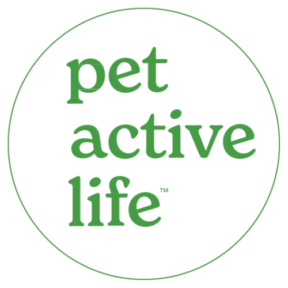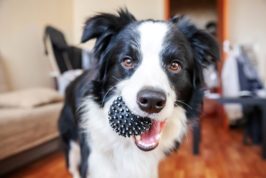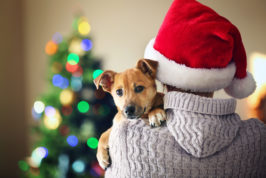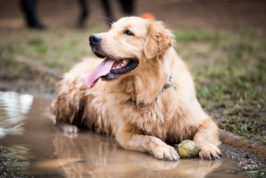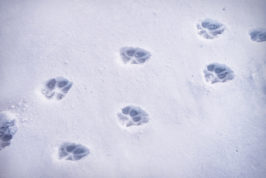Everything a new dog owner needs to know
Few things in life are as joyful as welcoming a new dog into the household. But if it’s your first, it can be a little overwhelming! This informative guide for new dog owners complete with top tips for new dog owners will help. We’ll cover what you need to organise before your canine’s arrival, the things you need to think about when you bring them home, and everything in between.
Before you bring your dog home
The essential new dog shopping list
First things, first – do you have everything you need for your new pup? You’ll want to tick the following off before you bring him or her home:
- A tagged collar with your name and phone number – never engrave your dog’s name on it, as it could leave them vulnerable to dog-nappers
- A good quality lead. Consider getting two – a normal lead and a flex lead that lets your pup explore further afield, but remain safely attached to you
- A cosy bed and soft blanket they can curl up in – with enough room to stretch out, too!
- Travel essentials, such as a dog guard, safety harness and crate
- A toilet training mat
- Dog food and treats
- Poo bags
- Toys
The admin essentials
You’ll need to do some research and plan ahead for the following:
- Purchase pet insurance
- Register with a vet
- Book him or her in for their vaccinations
- Sign up with a local ‘puppy playgroup’
After you bring your dog home
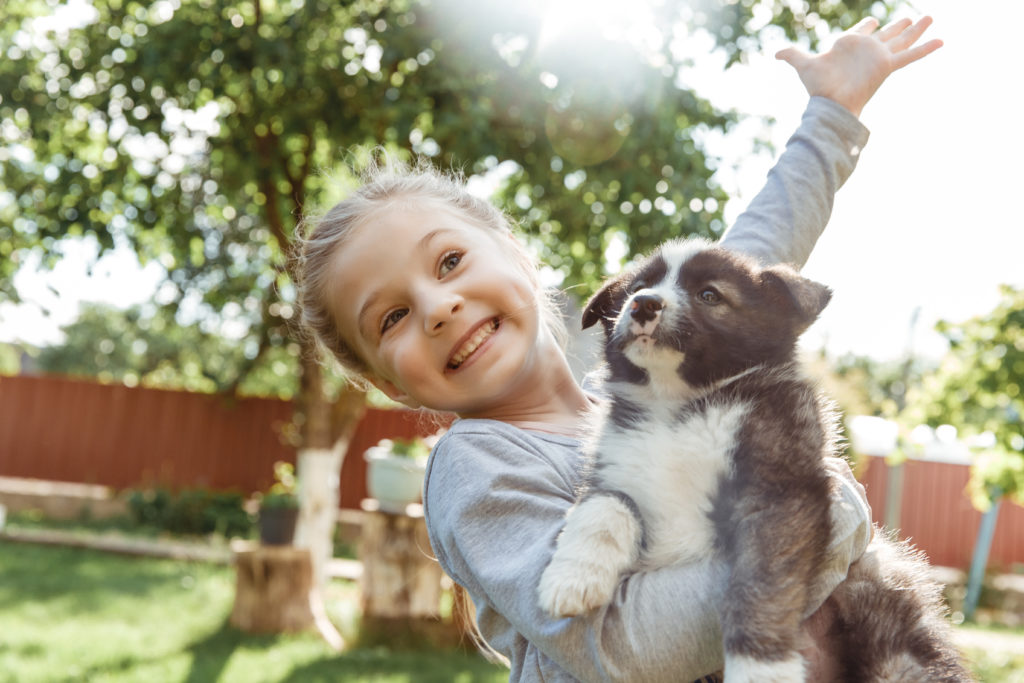
Your new dog’s diet
Your pup should be on a diet filled with protein, such as meat and fish, carbs (starch foods) and nutritious fruit and veg. Look for natural, ‘complete’ food formulas that provide all of these, and avoid anything containing fillers, and artificial colouring and flavouring. You should buy the best quality food you can afford, and something that’s suited to your dog’s age and fitness levels. Ask your vet if you’re unsure!
Foods to steer clear of
Tempting as it is, don’t allow your dog to eat human food. Our food is much more calorific to dogs, and some things can be toxic. Here’s a list of foods that could be potentially dangerous to your pup, and bring on everything from severe tummy upset to damaged red blood cells…
- Chocolate
- Onion
- Garlic
- Chives
- Avocado
- Nuts
- Alcohol
- Cooked bones
- Corn
- Xylitol (artificial sweetener)
Digestive issues
You may hear your pup’s tummy making noises from time to time, and it’s not uncommon. Consider that your new dog is taking in new surroundings and faces, a new routine and potentially a new diet. Probiotics can help settle things, but if things aren’t getting better and you’re concerned, ask your vet for advice.
Exercise and your new dog
Regular exercise is crucial for a healthy dog. Not only does it keep their weight and physical fitness in check, it’s also a great mood-lifter and brain stimulator. You’ll need to start small if you’ve got a puppy – just two walks a day for a few minutes. Read our expert’s comprehensive guide to walking a young canine here.
Things to consider when dog walking
- If other owners have their dogs on a lead, follow their example – it’s considered good dog walking etiquette
- If you spot the colour yellow on a dog, it’s a signal to keep a distance. Perhaps because the canine isn’t good at interacting with others, has a nervous temperament or is recovering from surgery
- Walking a new puppy is a bonding experience, so put the phone away and make sure you’re fully present – talking to your pup now and again
- It goes without saying you should pick up your waste. If you see bags hanging from fences or trees, don’t follow suit – bin yours, or it’s littering
Bonding with your new dog
Probably the best thing about bringing a new dog home is establishing a bond like no other. And don’t panic if it’s not love at first sight for your canine! Building trust takes time, and there are lots of things you can do to create a wonderful, loving relationship with your pet. The key? Build a strong foundation for training in the early days, while ensuring your new pup isn’t too dependent on you. And be patient! Here are our top tips for bonding with a new dog…
1. Control your interactions
Do not respond to jumping up, barking or nudging with loving sounds and play. Instead, ignore your dog and wait until they’re quiet, then respond with a tasty treat and playtime. In the same way, you choose when to stop the play.
2. Encourage good behaviour via a warning word
Choose a word or phrase – for instance, ‘that’s enough!’ and then ignore your pet. Your dog will quickly recognise this is a warning, and you can use it whenever they get over-excited or are being disobedient.
3. Establish a consistent routine
A new home will likely be unsettling for your new furry family member, but sticking to a familiar routine will help them feel more comfortable. That means having walkies, mealtimes and bedtime at the same times each day.
4. Enjoy each other’s company!
Whether it’s playing in the garden, cuddling up on the sofa, or a family trip to the beach, spending quality time with your new dog is a sure-fire way to establish a connection.
Dog healthcare tips
You’ve already registered with your vet and booked the vaccinations in – brilliant. But what other things should you be thinking about when it comes to your pet’s wellbeing?
Neutering
Neutering is a must-have procedure for preventing accidental pregnancies first and foremost, but also to help male canines feel calmer, and to reduce the risk of some cancers.
Pest control
You should use worming and flea tablets year-round. Set yourself reminders so you can stay on track with your supply.
Oral hygiene
Contrary to popular belief, dogs need their teeth looked after just like humans do. It’s a common misconception that they’re self-cleaning, but you should aim for four times a week. Read our guide to cleaning your dog’s teeth here.
Grooming
You’ll need to groom your dog to keep his or her coat healthy. Some breeds need more care than others, and you might want to consider sending your canine to a professional.
Body checks
Look out for bumps, lumps and sore areas by running your hands over your canine’s body once a week. You should also check your dog’s ears often, keeping an eye out for discharge, unusual odours and excess wax.
Paws and claws
Clip long claws where necessary. If your dog doesn’t respond well to this, you can ask a groomer to do it for you, or try a nail file instead.
Supplements
In the same way we might take Vitamin D or Zinc, canine supplements are designed to promote a healthy, working body. Whether it’s joint stiffness or digestive issues, there’s a supplement for that, which will help your dog feel great.
Training a new dog
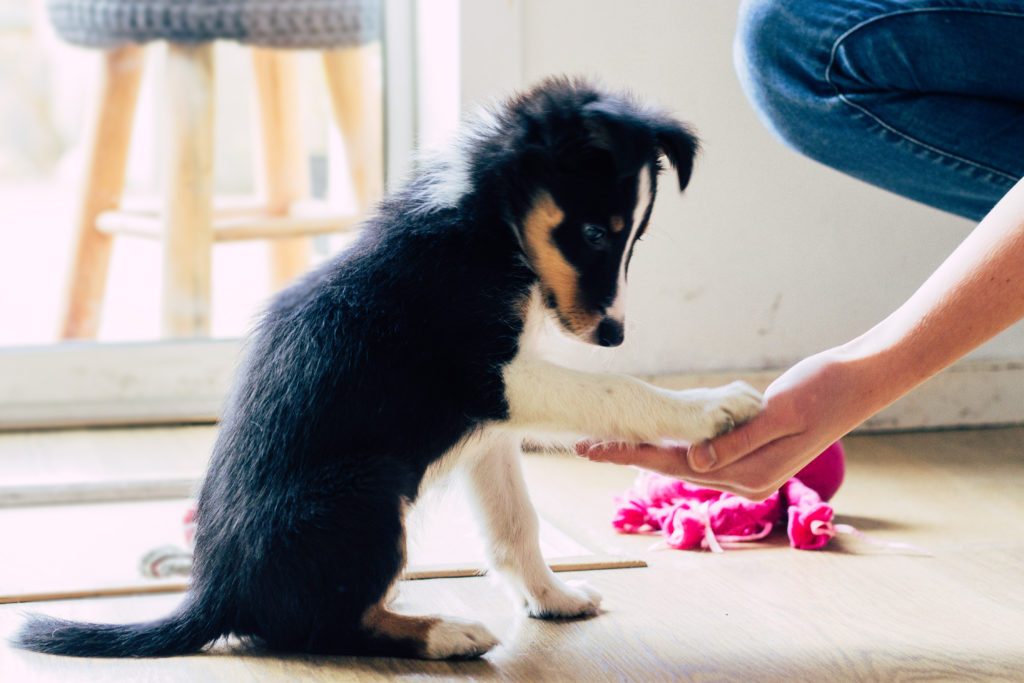
We might be dog mad, but not everybody else is! And that’s totally understandable. It’s our job as dog owners to keep those around us comfortable, and that means ensuring our dogs don’t jump up on them (or their furniture!), or cause distress because they’re overexcited.
The key to responsible dog ownership? A well-trained pooch. The easiest route is via a puppy training school. It’s a good way for your canine to socialise and learn at the same time. Ask your vet for recommendations.
A final word
Above all, cherish this time as much as you can! Welcoming a new dog is special, and it’s the start of a lifetime of memories. Relax, be patient and your furry companion will feel like part of the family in no time.
